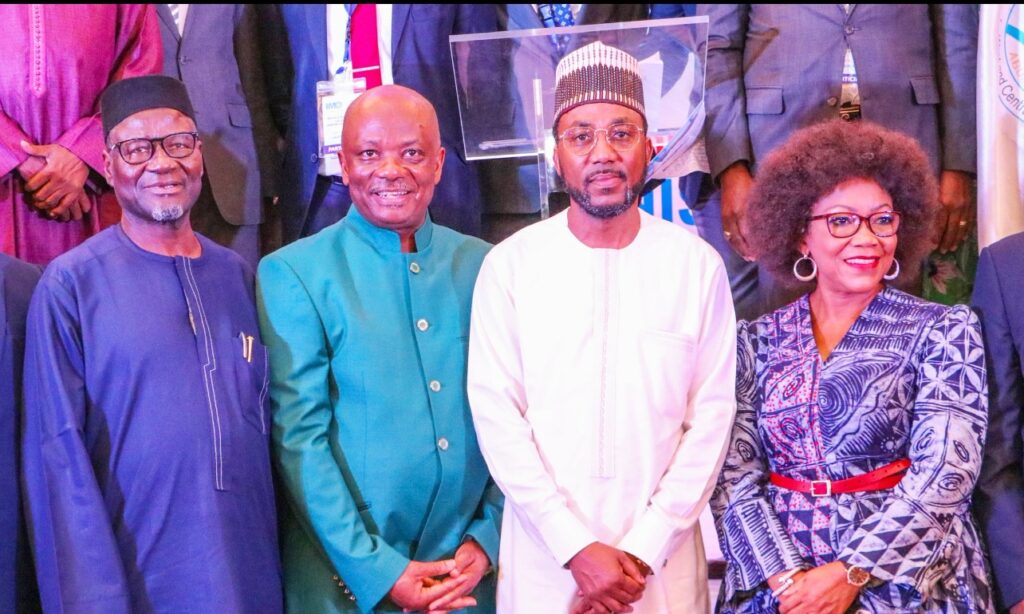… Set to deploy Body Cam to improve transparency
The Memorandum of Understanding on Port State Control for West and Central Africa Region otherwise known as Abuja MoU has said that it is in the process of signing an agreement with the American Bureau of Shipping (ABS) to conduct practical training on Virtual Port State Inspection.
The Secretary General of the Abuja MoU, Captain Sunday Umoren who stated this at the ongoing workshop organized for Heads of Maritime Administrations in the West and Central Africa Region in Lagos on Monday said that dealing with the e-generation called for e-governance which member States needed to start thinking with respect to Port State Control (PSC) activities.
Umoren opined the physical and hard technologies were (though still are) used in dealing and auditing/inspecting ships and systems but now soft/e-technologies were slowly gaining momentum and reducing human interaction.
He added that with this, the world including Port State Regimes needed to stay in tandem to match the trend.
His words, “Indeed, we (Abuja MoU) are currently in the process of signing an agreement with American Bureau of Shipping (ABS) to conduct practical training on Virtual Port State Inspection. On the lighter note, one is left to ask the best way for such training. Should it be virtually or physically?”
The Secretary General disclosed that the Secretariat had achieved appreciable success in the training of Port State Control officers being the first line of both offence and defence in the battle against substandard shipping in the regional waters.
He, however, submitted that there could be no long term success in capacity building without an across-the-board buy-in of all persons in the spectrum and that spanned from the Presidents, the Honourable Ministers, the DGs/CFO of the Maritime Administrations, the judiciary, the supporting Ministries, Directorates, Agencies, Port State Officers and all the supporters including maritime institutions.
“Accordingly, this training is aimed at ultimately obtaining the unlimited support of the policy makers who will in turn hold the officers on the scene (PSCOs) accountable thereby improving the efficacies of the regime. This, distinguished ladies and gentlemen, is the strategic reasoning behind this training.
“I should hasten to add that we are not unaware of the fact that all of you have unquestionable skill levels in the expectations of PSC regimes. This brings us to the other reason for the training, which is to improve the networking loop of all the MARADs in our region recalling that there might arise anytime, a need to seek the assistance of the next Member State to apprehend an errant vessel.
“This is in the spirit of Section 1 Commitments under ss1..4 which states that ‘Each Authority will consult, cooperate and exchange information with the other Authorities in order to further the aims of the Memorandum.’ We are expectant that as a consequence of this workshop, the task of making the call to that next Administration would be considerably simpler.”
While thanking the International Maritime Organization for showing them what true leadership was, Umoren said, “You did not just call for the establishment of the Port State Control system with Resolution A631, but you have consistently monitored and made the necessary revision to the establishing Resolution with the current being Resolution A.1155(32) to ensure that the objectives of the Port State Control system are met and that they evolve to meet the currency of our ever changing/dynamic terrain and world.
“Once again, thank you IMO for your support, especially in organizing training programs for our member States. We do hope that future training which will be related to evolving technologies will also be organized and one of such could be ‘Port States Inspection on unmanned Vessels (MASS related).
“We have identified training as an essential element of our capacity building project noting that maritime training is about proficiency and competence and not purely academic. Ocean learning courses are STCW/Flag State Approved and majority are approved by some MARADs including MCA and the Norwegian Maritime Authority.”
The Secretary General further hinted that with the increased issues of transparency, Abuja MoU had been working with The Maritime Anti-Corruption Network which according to him, clearly highlights integrity issues with the Port State Control officers.
“Yes, the determination of such cases are arguably based on the words of the Masters against the Port State Control officers and this usually leaves the MARADS and the MoUs with low quality evidence to act on. We are happy the end is on sight by innovative application of existing technology being tested by the Australian Maritime Authority. The technology is the body cam.
“Body Cam (the type used by Police) with real time recording are being considered with the need to ensure that they are intrinsically safe for maritime world especially tankers’ environment. Is this the way forward? We will wait until such is given the endorsement and approval required or is any of our MARAD ready to do a test run (noting the need to conduct and sign off on related due diligence)”, he declared.
The workshop was facilitated by the Abuja MoU on Port State Control for West and Central African Region and the International Maritime Organization (IMO).
Photo: Representative of the Director General, Nigerian Maritime Administration and Safety Agency (NIMASA), Mr. Shehu Ahmed; Secretary General, Abuja MoU, Captain Sunday Umoren; Managing Director, Nigerian Ports Authority (NPA), Mohammed Bello-Koko and Former Director General NIMASA, Mrs. Mfon Usoro during the opening ceremony of the IMO/Abuja MoU Workshop for Heads of Maritime Administrations in the West and Central Africa Region in Lagos.
Send your press invite, news, press releases/articles to augustinenwadinamuo@yahoo.com. Also, follow us on Twitter @ptreporters and on Facebook on facebook.com/primetimereporters or call the editor on 07030661526, 08053908817.

